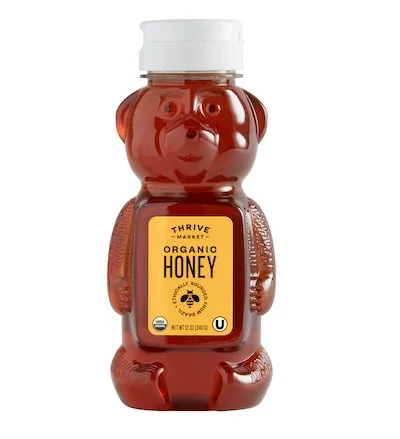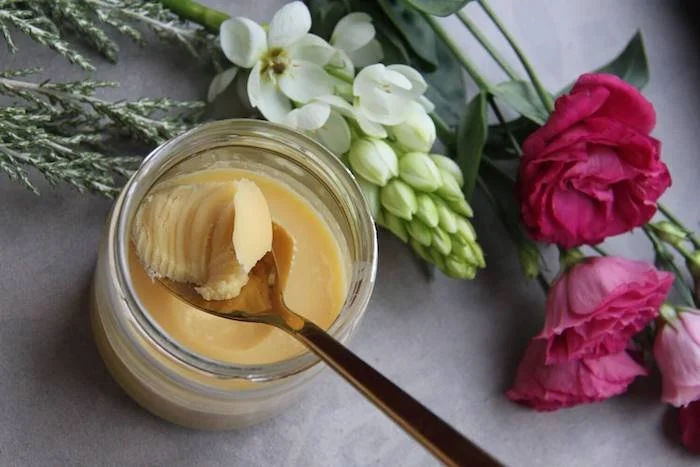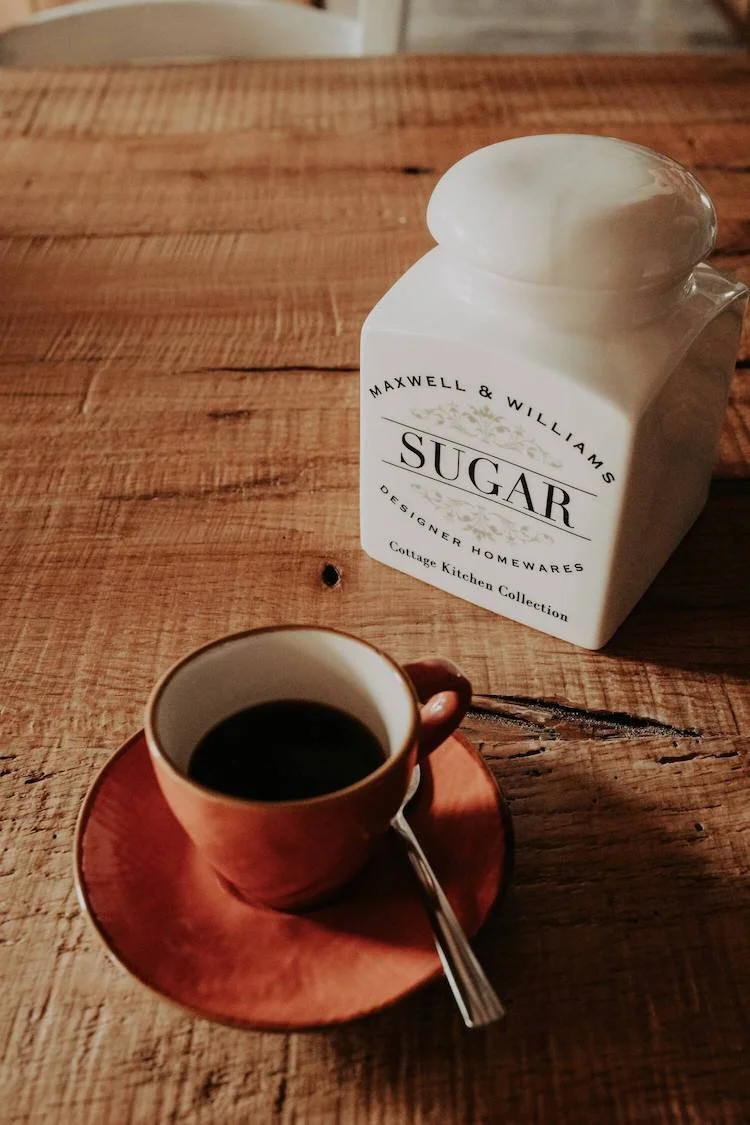The Best Organic Honey Brands to Buy
We all know honey is delicious – no wonder it’s a common feature in almost any pantry. According to the National Honey Board, the average American consumes 1.51 pounds per year.
Honey has been used for centuries and is still revered today for its delicious flavor, but also for its health and medicinal benefits.
Let’s look at some of the benefits of honey and discover some of the best organic honey.
This post does contain some affiliate links which means The Honest Consumer may receive a commission if you decided to purchase. Our commission is at no additional expense to you!
Health Benefits of Honey
Honey has some amazing medicinal properties and and health benefits. These are just a few!
Fights Infections-Honey has a centuries-old role in speeding wound healing thanks to its natural acidity and the presence of hydrogen peroxide - a potent antimicrobial agent which has the power to kill bacteria. Studies have shown that it is effective against many strains, including E. coli and salmonella, and can even heal wounds that don't respond to antibiotics. It's also been known to boast your immune system.
Soothes sore throats-The irritating scratchiness, burning and dryness that comes with a sore throat can be alleviated with a dose of honey. A study of 139 children found that honey was more effective at easing nighttime coughs and improving sleep than commonly used cough suppressant dextromethorphan and diphenhydramine (Benadryl). You can create your own elixir at home by mixing up to 2 teaspoons of honey with herbal tea or warm water and lemon.
Boost energy-Struggling with fatigue? Honey can give you an energy boost without the side effects. The carbohydrates in honey get absorbed by the body more quickly than glucose and white sugar. Studies done at the University of Memphis found that honey was just as good or better than glucose or sugar in boosting the staying power of endurance athletes.
Improves sleep-If you have trouble falling asleep, a teaspoon of honey right before bed can help you combat insomnia.The natural sweetener triggers the body's release of tryptophan and melatonin - a hormone that helps regulate your body's sleep-wake cycles. Just add a teaspoon of honey to a glass of hot milk for better night’s sleep.
Treats digestion problems-Honey can be used to treat digestive issues such as diarrhea and ulcers. It contains certain enzymes that act as a catalyst in the digestion process. Honey also contains beneficial prebiotics which promote the growth of healthy bacteria which are crucial for gut health.
Aids weightloss-You’ve heard it before; drink some warm water with honey and lemon first thing in the morning to shed off some extra pounds. Well, there could be some truth to it. A 2010 study published in the Journal of the American College of Nutrition found that honey had less of an effect on blood sugar than regular table sugar, making people feel fuller for longer.
Helps with hangovers-Although the best cure for a hangover is time, eating honey can help the body recover much faster. Fructose found in golden syrup aids the body in quickly breaking down all the alcohol left in your body. Top off your morning oats or yogurt with some honey to kick start your morning after night out.
Environmental Benefits of Honey
Eating honey isn’t just good for your body, it’s good for the planet. Here’s a few of the many reasons why:
Honey supports sustainable farming
Honey’s main rival in the sweetener industry is sugar which requires a lot of land for cultivation as well as chemical fertilizer and pesticides which harm the environment.
Honey, on the other hand, requires very little space and is beneficial for the surrounding ecosystems, making bee-keeping sustainable.
It saves natural resources.
Sugar is extracted through a series of processes including evaporation, boiling and bleaching which takes up a lot of energy and generates wastewater, emissions and solid waste.
In contrast, honey demands little resources for harvesting and pasteurization.
Protects Bees
You may have read the apocalyptic headlines that honey bees could go extinct which could be detrimental to plant life and our very own existence.
By swapping sweeteners like sugar with honey, we can help grow honey populations that are dwindling every day.
How to Choose the Healthiest Honey
Walk into any grocery store to pick out a jar of honey you’ll see a wide selection of honey with labels such as “raw”, “pure” and “organic”. There are a lot of different kinds of honey.
What do they all mean? We’ll help you demystify all these labels so you’ll know exactly what you’re getting and choose the best natural sweeteners for your needs.
What is raw honey?
Raw Honey comes straight from the beehive. It is not pollen-filtered or pasteurized (heat treated), leaving the nutrients and enzymes intact.
What is pure honey?
In some cases, additional ingredients such as glucose, dextrose, molasses and sugar syrup are added to regular honey to improve profit margins. The label “pure honey” indicates the product doesn’t contain any additives.
What is organic honey?
Organic honey has been harvested from a bee farm grown without synthetic fertilizers, pesticides or miticides (antibiotics) to treat the bees.
Farming is scrutinized by a third-party organic association, ensuring the utmost purity and quality of the honey.
Organic honey may still have undergone filtration and pasteurization.
Why choose organic honey?
Conventional honey may contain harmful chemicals which could accumulate in your body, causing health problems in the long run. The best option is to buy certified organic and unfiltered honey for maximum nutritional benefits.
But if you can't find the organic certification, just be sure to avoid commercial honey products that have artificial sweeteners like high fructose corn syrup as this is not the healthiest choice.
6 Organic Honey Brands to Try
If you're ready to try a certain type of honey get ready to discover liquid gold with these brands.
These are some of the best honey brands conscious of the environment and ingredients going into their products.
You're sure to find some quality honey made with a transparent supply chain in mind.
Nate’s Honey Free from Additives
Nate’s organic honey comes from a family-owned brand that comes straight from the protected rainforests of South America. Each bottle has been tested rigorously to ensure it’s free additives like corn syrup, sugar, or hidden preservatives.
Nate’s honey is unfiltered and unpasteurized, which means it has all the micronutrients needed for your health. This honey can be purchased from their online store for $8-$10.
Wholesome Organic Fair Trade Certified Honey
Wholesome is another excellent organic honey brand that deserves a spot in your pantry. This organic honey is hand-harvested from hives in South America.
It is unfiltered and is only heated to 110˚F to retain its nutritional benefits.
Wholesome’s honey is Fair-trade certified, so every purchase will help give back to the beekeeping communities that harvest the honey.
Add a few teaspoons of this organic honey to your favorite herbal tea and you’ll get a serious nutritional boost to your day.
Their delicious honey can be purchased for $10 and even found as select grocery stores specializing in organic foods.
Thrive Market’s Affordable Organic Honey
Thrive Market is known to offer high quality essentials at an affordable price and the Organic Honey Bear is another one of their greatest hits.
Their organic honey is certified according to the USDA’s National Organic Program standards. It's free of synthetically-produced fertilizers, antibiotics, pesticides, fungicides, or herbicides.
Not only does it taste amazing, it comes in a cute bottle that will make you smile every time you reach for it. Thrive Market's organic honey features an affordable prices ranging from $5-$12 depending on the size of the jar.
YS Organic Organic Pure Unfiltered Honey
YS Organic is not just another honey distributor, the company claims to be the longest-standing and reputable national distributor of certified organic honey in the United States. They received their certifications in 1995 after many years of intensive research.
Their organic honey is 100% pure, unfiltered and unpasteurized, loved for its delicious flavor and creaminess. Drizzle this organic raw honey on your morning toast or oatmeal for added natural sweetness.
They have quite a variety of honey including clover honey, Manuka honey, raw buckwheat honey, and more. Their honey can be purchased online for $7-$16 a jar.
Glory Bee’s Organic Flavored Honey
Glory Bee boasts one of the largest selections of varietal honey of any honey company. They prefer to source organic raw honey produced by small local beekeepers who farm using natural, organic, environmentally friendly practices.
Glory Bee’s honey is raw, unfiltered and tested according to the highest standards to verify that it’s free from antibiotics, pesticides, fungicides or herbicides.
This brand has some unique flavors of honey. Prices for Glory Bee honey range from $9-$20.
Wedderspoon’s Organic Manuka Honey
Wedderspoon is one of the most reputable brands in the Manuka honey business. Their raw Manuka is flavorful, packed with living enzymes & minerals, nourishing superfood that supports whole body wellness.
Wedderspoon is not just concerned about the taste and quality of the honey; they also care about the planet. That’s why they’ve removed the extra packaging on their Manuka honey jars to minimize package waste. Their products can be purchased for $21-$26 a jar.
It's also important to know there are a lot of small farms that do not have the time or resources to seek out USDA Organic certifications. If you're at your local farmer's market just ask about their practices! Supporting local farms is a great choice!
Hopefully this guide helped you learn more about the types of honey , the health benefits, and find some real honey that your taste buds will love.
For more tips & tricks on sustainable living be sure to follow The Honest Consumer on social media, subscribe to our newsletter, & check out the Ethical & Sustainable Brand Directory.




















